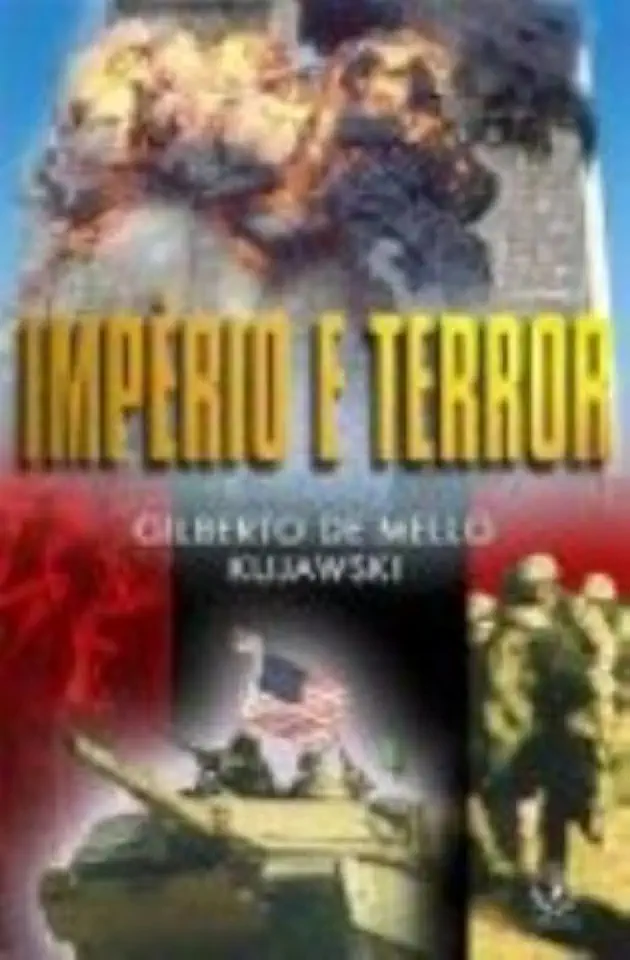
Empire and Terror - Gilberto de Mello Kujawski
Empire and Terror: A Comprehensive History of the Roman Empire
In "Empire and Terror," Gilberto de Mello Kujawski presents a sweeping and comprehensive history of the Roman Empire, spanning from its humble beginnings as a small city-state in central Italy to its eventual transformation into one of the largest and most powerful empires in the ancient world. Kujawski's meticulously researched and engagingly written narrative offers a unique perspective on the rise and fall of Rome, focusing on the role of terror and violence in shaping the empire's trajectory.
The Early Republic: A Foundation Built on Conquest
The early Roman Republic was characterized by a relentless pursuit of conquest and expansion. The Romans, driven by a combination of ambition, greed, and a sense of destiny, embarked on a series of military campaigns that brought them into conflict with neighboring tribes and city-states. Kujawski vividly portrays the brutality and ruthlessness of these early conquests, highlighting the massacres, enslavements, and destruction that accompanied the Roman advance.
The Rise of Imperial Power: Terror as a Tool of Control
As the Roman Republic expanded, it faced increasing challenges from both external enemies and internal dissent. To maintain control over their vast and diverse empire, the Romans increasingly resorted to terror as a means of suppressing opposition and instilling fear. Kujawski explores the various forms of terror employed by the Romans, including public executions, torture, and the use of secret police. He argues that terror was not merely a byproduct of Roman rule but rather a deliberate strategy designed to maintain power and quell dissent.
The Imperial Zenith: A Colossal Empire at the Brink of Collapse
At its peak, the Roman Empire stretched from the British Isles to North Africa and from the Iberian Peninsula to the Middle East. Kujawski paints a vivid picture of the grandeur and opulence of imperial Rome, highlighting the magnificent architecture, technological advancements, and cultural achievements that characterized this era. However, beneath the surface of imperial splendor lay deep-seated problems, including economic inequality, political corruption, and military overstretch. Kujawski argues that the seeds of Rome's eventual decline were sown during this period of imperial zenith.
The Decline and Fall: A Slow and Painful Demise
The decline and fall of the Roman Empire was a protracted and complex process that spanned several centuries. Kujawski identifies a number of factors that contributed to Rome's downfall, including barbarian invasions, economic decline, political instability, and the rise of Christianity. He explores the various challenges that the empire faced during this period and argues that the empire's ultimate collapse was the result of a combination of internal weaknesses and external pressures.
Conclusion: The Legacy of Empire and Terror
In the final chapter, Kujawski reflects on the legacy of the Roman Empire and its impact on Western civilization. He argues that the Roman Empire's use of terror and violence had a profound and lasting impact on the development of European society and politics. He concludes by drawing parallels between the Roman Empire and modern empires, highlighting the dangers of unchecked power and the importance of resisting tyranny and oppression.
Why You Should Read "Empire and Terror"
"Empire and Terror" is a must-read for anyone interested in ancient history, Roman civilization, or the dynamics of power and violence in human societies. Gilberto de Mello Kujawski's masterful storytelling and rigorous scholarship make this book an essential addition to the libraries of historians, scholars, and general readers alike.
Here are a few reasons why you should read "Empire and Terror":
Comprehensive and Engaging Narrative: Kujawski's book provides a comprehensive overview of the Roman Empire, from its humble beginnings to its eventual decline and fall. The narrative is engaging and accessible, making it an enjoyable read for both experts and general readers.
Unique Perspective on Roman History: Kujawski's focus on the role of terror and violence in shaping the Roman Empire offers a unique perspective on this important period in history. He challenges traditional narratives and provides a deeper understanding of the complex dynamics that drove the rise and fall of Rome.
Well-Researched and Scholarly: Kujawski's book is meticulously researched and draws on a wide range of primary and secondary sources. He provides extensive footnotes and references, making it a valuable resource for scholars and researchers.
Thought-Provoking and Relevant: "Empire and Terror" raises important questions about the nature of power, the use of violence, and the consequences of unchecked ambition. The book is highly relevant to contemporary discussions about the rise of authoritarianism and the dangers of unchecked power.
Don't miss out on this opportunity to gain a deeper understanding of the Roman Empire and its enduring legacy. Order your copy of "Empire and Terror" today!